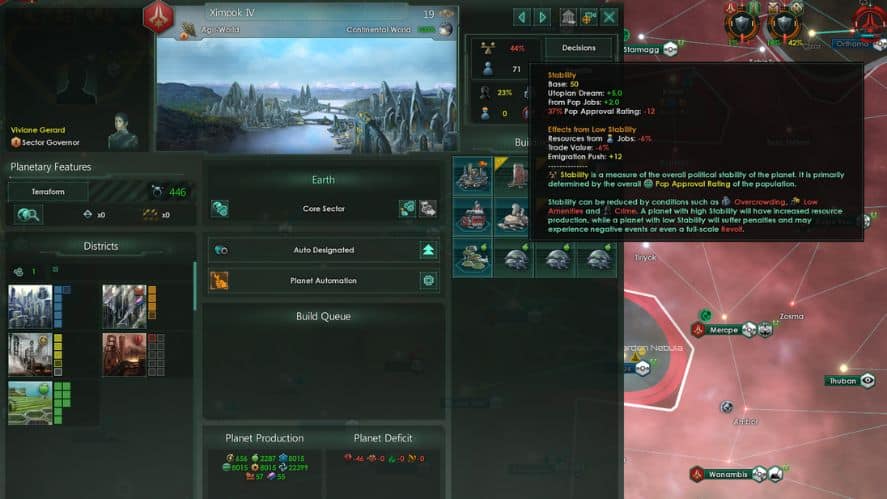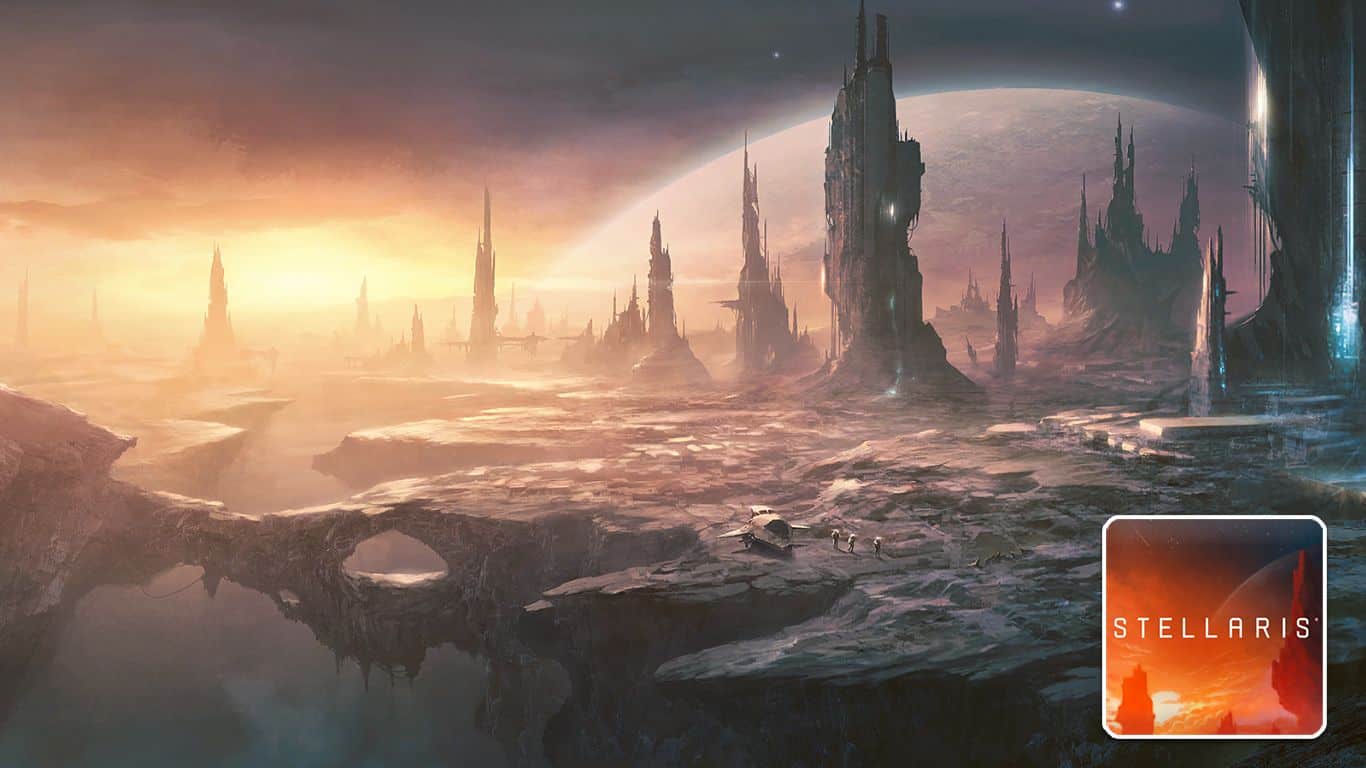No one ever said that running a multi-planet space empire would be easy, but that doesn’t mean it is impossible either. Effective planetary management is a learned skill in Stellaris, and is the culmination of multiple game mechanics.
One of these mechanics is the stability system. Failing to manage your planets’ stability can have devastating consequences, from decreased production to full-blown revolts.
Recommended Read: How to Get a Subjugation Casus Belli in Stellaris
Different empires will deal with stability issues in their own way. Some may quash instability with an iron fist, whilst others may gift their populace with luxurious items. High stability is paramount for a functioning and effective planet economy.
Prevention is better than the cure when it comes to raising stability. To improve stability on planets in Stellaris, you can improve pop happiness, reduce crime, ensure all pops have homes, and ensure you meet amenities requirements. You can also stack stability modifiers, which come from a wide array of sources.
Table of Contents
What is Stability in Stellaris
Every colonized planet in Stellaris has a stability score. This number is a numerical representation of how the planet, and its citizens, are coping.
The score ranges from zero to one hundred. The base score for every world is 50. A planet with a zero percent stability score is a lawless place where crime and violence are a regular part of life.
Whereas a planet with a 100 percent stability is a utopia where the people are free from the worries of violence or crime.
The effects of high or low scores all occur off-screen.
What players do receive is in-game event pop-ups, bonuses, or negative modifiers, dependent on the planets’ stability score. These bonuses are why you should strive for high scores wherever possible.
High scores lead to pops producing more resources at their jobs, increases in trade value, and improved immigration pull. Low stability scores lead to negative modifier in jobs, trade value, and pops emigrating.
I will not discuss the exact percentages of the modifiers in this guide. You should be aware that penalties for low scores are much more severe than the rewards for high stability.
The base score is 50 percent. If stability is at this score, the planet gains no bonus or penalty.
Whether for good or bad, modifiers are applied incrementally for every one percent above or below the base score.
A full breakdown of how your score is calculated can be seen from the planet menu at any time.

If one of your planets maintains a score of 25 percent or below for a year, you run the risk of the planet revolting.
How to Increase Stability in Stellaris
Low stability comes from a variety of sources, and there is no one-size-fits-all solution either. There are a few quick fixes at your disposal, but they are only temporary solutions to a much larger problem.
Crime, pop housing, pop amenities, and pop happiness are the main factors that affect stability.
There are a wide variety of other factors that also affect stability, but these are the ones that you have the most control over as a player.
If these four factors maintain a good standard, your planet should have no problem surpassing or maintaining the base level of stability.
Pop housing is easy to manage if you have more pops than you have housing. Build more districts and or buildings that provide housing.
Be careful not to overbuild housing that’s wasted real estate that could be used to improve your economy.
Amenities are a strange resource in Stellaris. They are easy to forget about, and low amenities lead to low happiness and stability.
Though easily forgotten, it is not difficult to remedy a shortage. Constructing buildings that provide amenity-producing jobs is the easiest solution.
The best of these is the entertainer job, provided by Holo-Theaters.
Other jobs include priests, clerks, maintenance drones, politicians, and medical workers. This list is not exhaustive, and they help supplement entertainer pop jobs very well.
Crime and pop happiness are not as easy to rectify. They do go hand in hand as well. Low happiness will increase crime, further lowering happiness. While high happiness reduces the risk of crime.
Crime generation stems from a wide variety of factors and could be a guide all on its own.
In brief, crime causes devastation, creates criminal jobs, reduces stability, harms trade value, and hampers resource production.
Crime reduction comes from high happiness, expelling criminal megacorporations, enforcer jobs, planetary decisions, and creating penal colonies.
Maintaining your pop’s basic needs is the key to high pop happiness. Housing, employment, amenities, high faction approval, and good habitability. If you look after your pops, they will look after you.
Stability Modifiers
There is a massive list of modifiers you can make use of to improve stability. A lot of these are hard to come by and cannot be relied upon for every play-through. Knowledge of their existence is useful nonetheless.
A short list of ways to provide a boost to stability is as follows
- Lower game difficulties
- Pacifist ethics
- Tradition tree perks
- Deep Space Black Site starbase building
- Relic active bonuses from the Ether Drake trophy and Scales of the Worm
- Governor traits, like chosen one and oracle
- Making use of edicts, such as nutritional plenitude and peace festivals
- From event pop-ups. Some of these provide great role-playing opportunities too.
There are many more ways to get quick stability bonuses, far too many for this guide. I will leave you to discover the rest on your own.
This is everything you need to know about keeping your stability high in Stellaris.
If you have any questions or suggestions for this guide, please let us know in the comments section below.
As always, have fun maintaining your stability in Stellaris.




